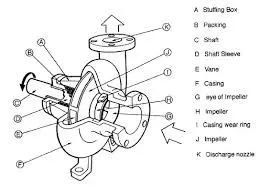Mobile:+86-311-808-126-83
Email:info@ydcastings.com
Gas Pipeline End Cap Specifications and Installation Guidelines for Efficient Sealing Solutions
Understanding Gas Pipe End Caps A Critical Component in Pipeline Systems
Gas pipe end caps play a vital role in the integrity and safety of pipeline systems used for transporting natural gas and other gases. These components, often overlooked, serve as a crucial part of the infrastructure, ensuring that gas pipelines are secure and functioning properly.
An end cap is essentially a fitting used to seal the end of a pipe. In gas applications, it is essential for several reasons. Firstly, end caps prevent gas leaks, which can lead to hazardous situations. Leaks can occur for various reasons, including wear and tear of the pipeline, environmental factors, or manufacturing defects. By effectively sealing the ends of pipes, end caps help mitigate these risks, thereby protecting both people and the environment.
Moreover, gas pipe end caps are crucial during the construction and maintenance phases of pipeline systems. When a pipeline is being installed, end caps can be used to block off sections of the pipeline that are not yet connected. This is important for maintaining system pressure and preventing contamination. During maintenance, end caps are similarly useful; they can help isolate sections of the pipeline for repairs or inspections without shutting down the entire system.
gas pipe end cap

The materials used for gas pipe end caps are equally important
. Commonly made from materials such as carbon steel, stainless steel, or PVC, the choice of material depends on the specific application and the type of gas being transported. For instance, corrosive gases may require more durable materials to ensure the longevity and reliability of the pipeline system.In terms of design, gas pipe end caps come in various sizes and pressure ratings to accommodate different pipeline specifications. Proper sizing is important to ensure a snug fit, which in turn helps prevent leaks. Additionally, end caps must meet industry standards and regulations to ensure they are safe for use in gas transmission.
In conclusion, gas pipe end caps are an integral component of gas pipeline systems. They not only enhance the safety and security of gas transport but also facilitate efficient construction and maintenance. By ensuring that pipelines are properly sealed, end caps play a pivotal role in preventing leaks and protecting both infrastructure and the environment. As the demand for natural gas continues to grow, understanding the importance of every component in the pipeline system, including gas pipe end caps, becomes increasingly essential.











